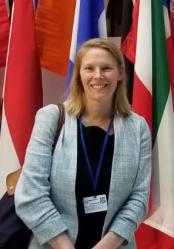A new era of geopolitical competition is emerging, raising questions on the role democracy will play in a shifting international order. At a time when democracy is challenged both from within and without, and the global balance of power is swaying, there is a need for a better understanding of how democratic systems work — and how they can fail. Democratic states are under enormous stress from a range of political, economic, and increasingly, technological factors. To meet the challenges of the 21st century, democratic governance must adapt for the digital age.
On October 1, Brookings Foreign Policy hosted Nicolas Berggruen and Nathan Gardels to discuss their most recent book, “Renovating Democracy: Governing in the Age of Globalization and Digital Capitalism.” The event began with remarks by Vice President and Director of Brookings Foreign Policy Bruce Jones on the interplay between the economic and political challenges that democracies must face and the changing dynamics of international order. He also discussed how digitalization has redefined social contracts and the winners and losers in the time of hyper-globalization.
The Pulitzer Center’s Indira Lakshmanan moderated a conversation between Gardels and Berggruen on the core challenges facing democracies in the West and practical solutions that can be implemented. The authors focused on three possible solutions from their book: participation without populism, predistribution, and positive nationalism. To allow for participation without populism, the authors recommend integrating social networks and direct democracy with institutions that mediate and foster consensus. Changing the narrative from “redistribution” of wealth, the authors argue for “predistribution” in an effort to improve the skillset and assets of those less affluent. The authors advocate for positive nationalism at home while supporting cooperation across the globe. They emphasized that Western countries do not need to abandon established institutions, only “renovate” within existing frameworks. Digitalization, social media, and technological innovation were recognized as major contributing factors to the change in social constructs and democracies. Social media and technology can be used in a constructive manner to increase public engagement and participation.
The panelists also debated China’s role in the international order, and specifically the relationship between the United States and China. Berggruen and Gardels highlighted the possibility of cooperation between the two countries despite differences. They mentioned that international factors will influence tensions, but that common ground could be found nevertheless.



Commentary
Highlights: Experts discuss how to renovate democracy in a new technological and geopolitical era
October 21, 2019